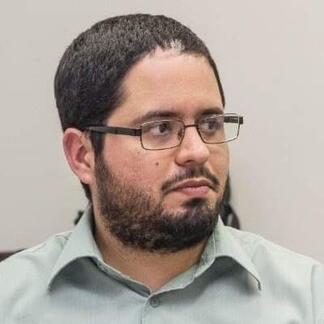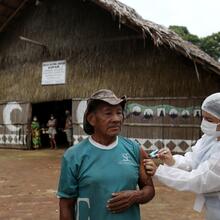Voices

Eduardo Campos Lima is a freelance journalist who contributes from São Paulo, Brazil.
Politics & SocietyDispatches
Covid-19 immunization campaigns must overcome enormous difficulties in reaching remote indigenous groups, isolated riverside communities and the villages of quilombola people, the descendants of African slaves.
Politics & SocietyDispatches
The Brazilian Constitution secures the right of women who are incarcerated to breastfeed their babies for six months. The law also allows them to serve their time at home. The decision is left to a judge.
Politics & SocietyDispatches
Refugees “can’t obtain the Brazilian documents,” one local bishop said, “but they keep needing shelter, food and healthcare.”
Politics & SocietyDispatches
The Catholic Church in Latin America is losing control of the pro-life movement. Can it win it back?
New social actors, especially evangelical Protestant groups and right-wing movements, have joined the debate on the liberalization of abortion law.
Politics & SocietyDispatches
The trafficking of women in Latin America has increased with the Covid-19 pandemic, according to church activists.
Politics & SocietyDispatches
National churches that face the most difficulties are in those countries that already had serious economic problems before the pandemic started.
Politics & SocietyDispatches
“There’s a common denominator in the United States and Latin America: Human rights violations associated with police abuse many times go unpunished.”
Politics & SocietyDispatches
Their isolation can be a positive—in this case it has kept the coronavirus at bay—“but they can’t count on government health care services and have to deal with a deep racism.”
Politics & SocietyDispatches
The C.E.B.s have been assisting the most vulnerable victims of the pandemic on multiple levels. In El Salvador, they have been gathering food and money in order to prepare for a possible hunger crisis.
Politics & SocietyDispatches
Migrants from Haiti, Central America and Venezuela have been caught in the middle of their journeys by the Covid-19 pandemic. The Latin American church is building up its support structure to respond to this emerging crisis.










